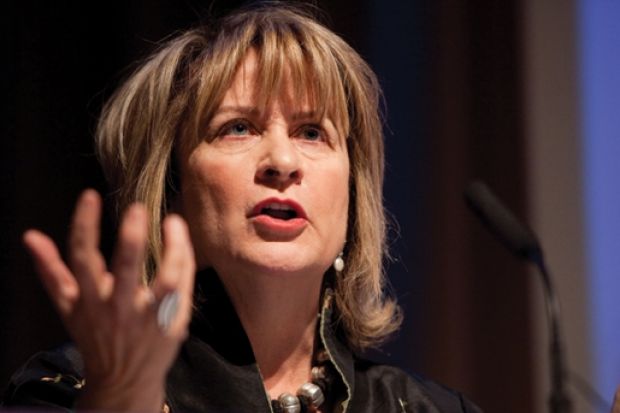Principal at an Oxford college might not seem a natural job for a Glaswegian from a working-class background who has spent much of her life waging war on social injustice and educational disadvantage.
But Mansfield College - known as the dissenters' college - is not like its University of Oxford counterparts and for its new head, barrister and Labour peer Baroness Kennedy of The Shaws, it was a fitting home.
Established in the 19th century as the first college for religious Nonconformists, Mansfield is now blazing a trail for fair access - it offered 84.5 per cent of its places to students from the state sector this year. More than two-thirds of these came from further education, sixth-form colleges or comprehensive schools.
"People's jaws drop when they hear that," Baroness Kennedy said. "If I've got 84 per cent, someone sitting here in Oxford has got a very bad story to tell."
Mansfield's state-school proportion is certainly much higher than the most recently published average for Oxford - in 2010, just 55.4 per cent of undergraduates accepted were from the state sector. Some had three-year averages that were below 50 per cent, including David Cameron's old college, Brasenose.
Baroness Kennedy said the difference was that Mansfield embarked - under principal and former Labour MP David Marquand - on a long-term project in the mid-1990s to crack the access nut without lowering standards.
Links with schools and further education colleges have been key. This is particularly true of further education, a subject close to Baroness Kennedy's heart given the eponymous foundation set up to aid access from the sector.
But learning how to spot talent in interviews, for which state-sector applicants are often ill-prepared, is also central.
"My fellows have learned how to do it," she said. "They've learned how to identify excellence in unusual places. They are not taken in by the veneer and the polish that can be produced by a certain kind of education and can see beyond the diffidence that you very often get from people from state schools."
She insisted that interviews at Mansfield were no less rigorous than at other Oxford colleges, and emphasised that it was important to be "aware that you're not doing anyone a favour by giving them a place if they're not going to be able to survive the academic demands".
But she said Mansfield had become "astute and mindful" about how state-sector students present themselves in interviews. "In lots of the other colleges, [tutors] are very easily suckered by what they perceive to be the excellence before them."
Madness will 'bite the dust'
The progress made by Mansfield and some other colleges raises the question of whether such access schemes might throw up unfair barriers for pupils from private schools. Here, Baroness Kennedy was unapologetic.
"I came to Oxford and I discovered that the upper-middle classes have got it clocked. Hard to get into Oxford? You get your kids to apply to do Classics or some obscure language, or get them to apply to do theology, because they are areas that Oxford wants to keep alive but which get too few applicants."
She claimed that other colleges knew what was "expected of them" on access. But when asked whether they were willing to change, she said "terrible snobbery" still existed in some institutions.
"[There are] all sorts of mad pecking orders and who sits where at tables and all kinds of nonsense that they seem to love. But it will slowly but surely bite the dust," she said, even as she noted that, to an extent, such behaviour grows out of the very approach to scholarship by some at Oxford.
"There is a madness about that kind of minutiae. If you're a scholar who is plumbing the real depths of a subject, it involves...narrowness. It can start to dictate how you see the world."
These comments reveal that whatever Mansfield's success, Oxford is still a place that Baroness Kennedy - who studied in London and now has her roots firmly in the cosmopolitan capital - feels slightly queasy about.
But the opportunity to counter government policy both from the House of Lords and from Oxford does not escape her - although she accused the university sector of being "pusillanimous" in the face of the current reforms.
"It didn't fight its corner when it should have done much earlier on. The privatisation of education, like the privatisation of health...has been a long-term project from the Right," she said. "And just in the same way that Labour rolled over thinking it was the only way forward, too many other sections of society have done the same thing.
"As far as I am concerned, the market has no place in health and education and in our welfare responsibilities to those who are most disadvantaged in our society."
Register to continue
Why register?
- Registration is free and only takes a moment
- Once registered, you can read 3 articles a month
- Sign up for our newsletter
Subscribe
Or subscribe for unlimited access to:
- Unlimited access to news, views, insights & reviews
- Digital editions
- Digital access to THE’s university and college rankings analysis
Already registered or a current subscriber? Login
